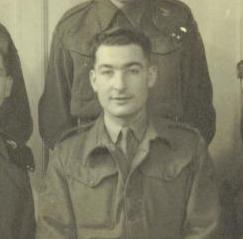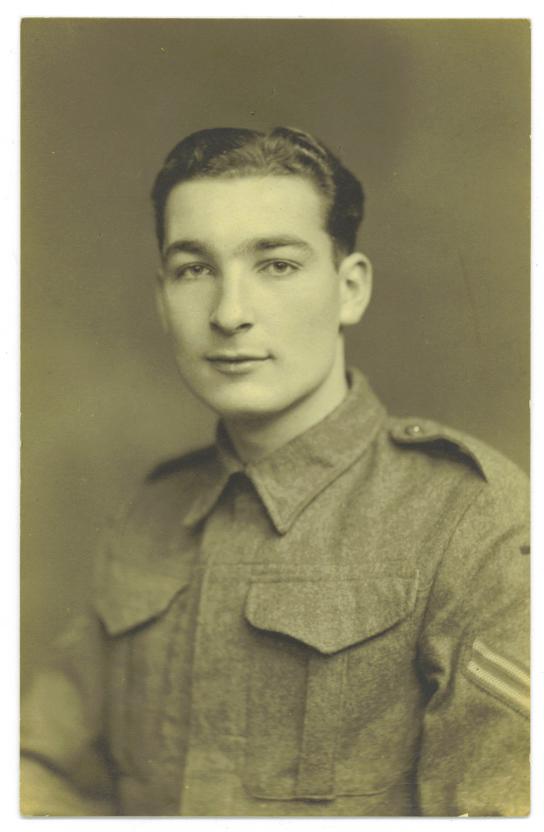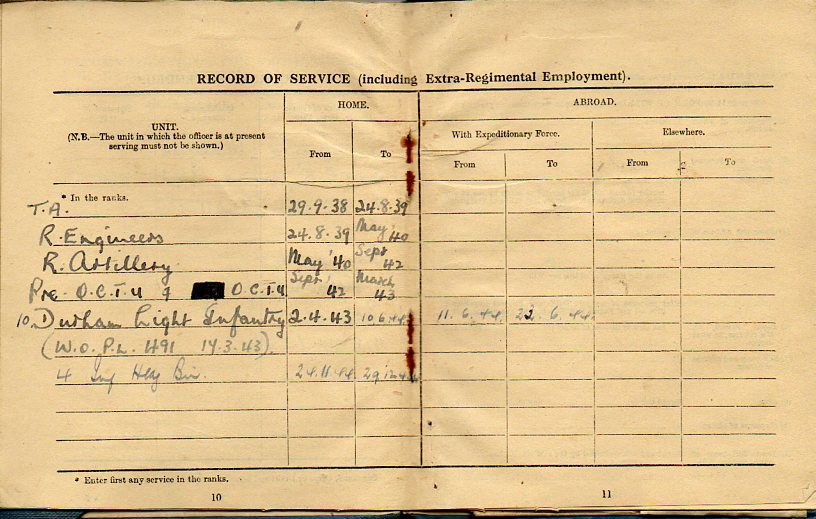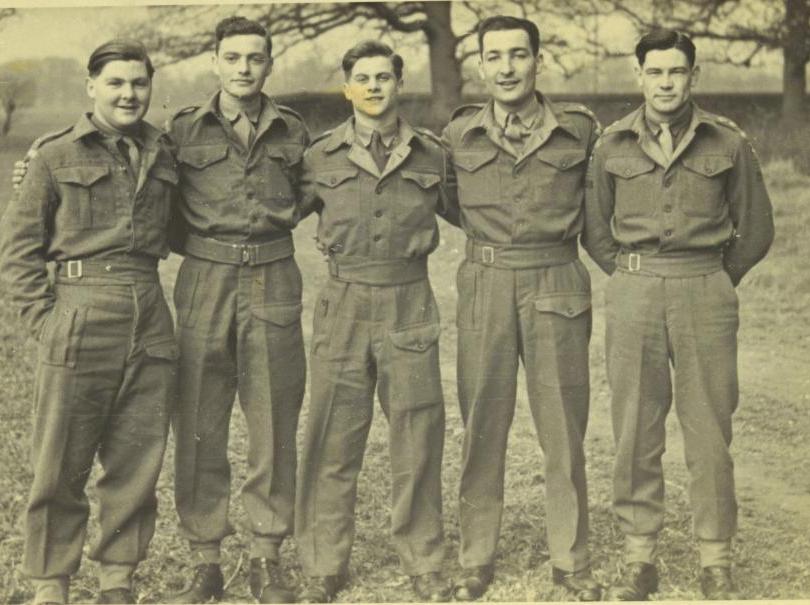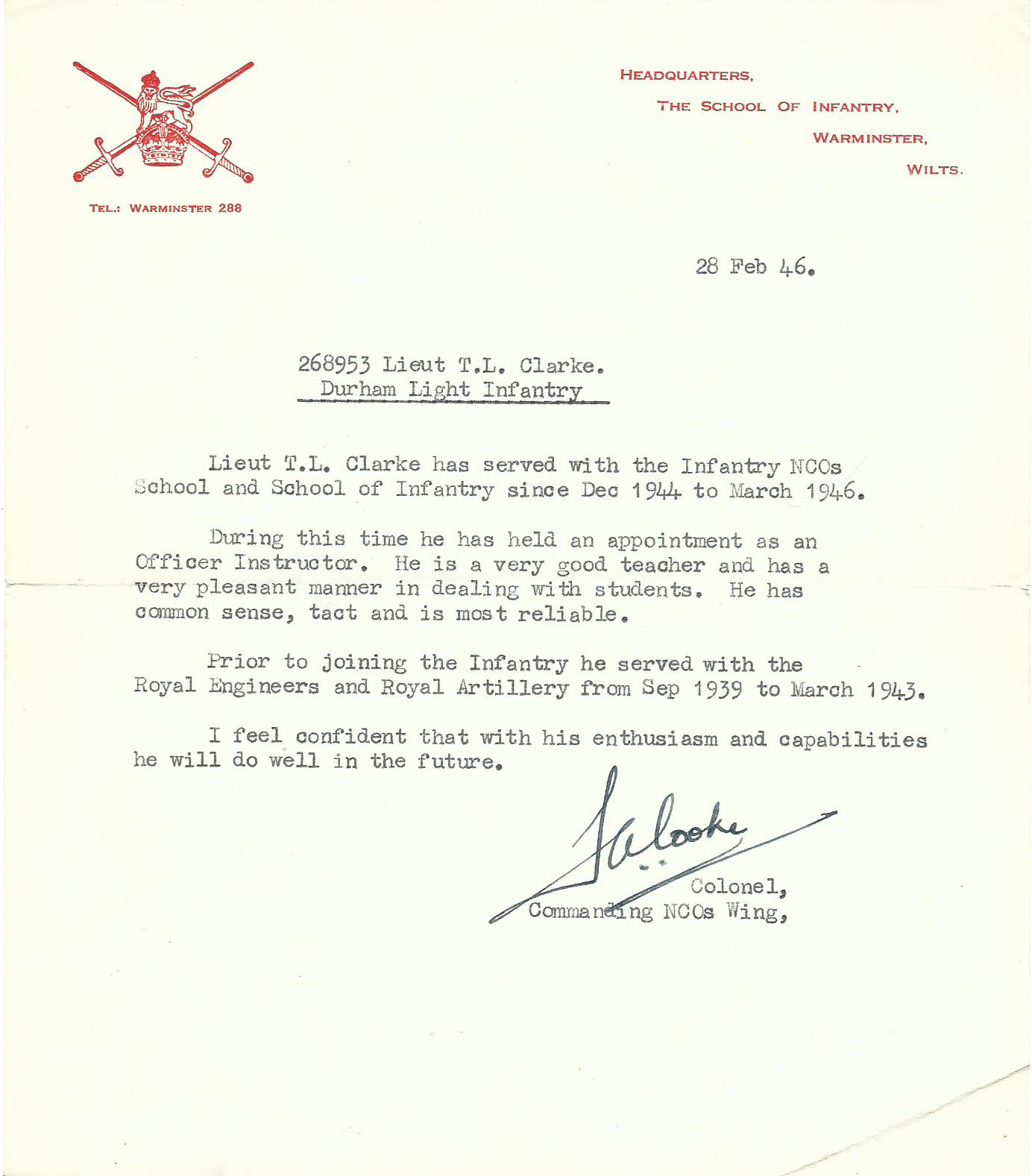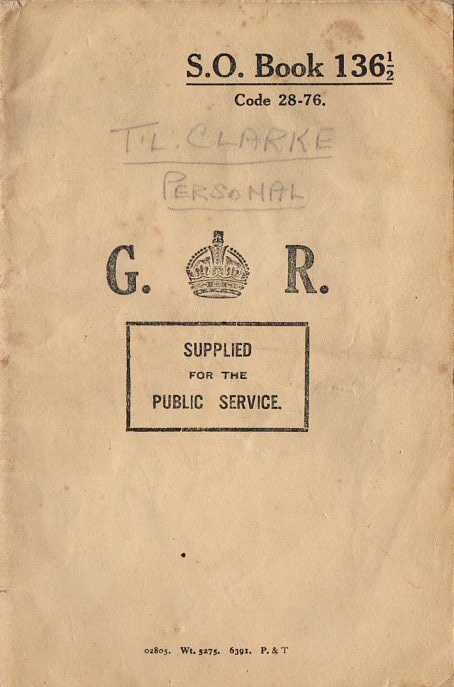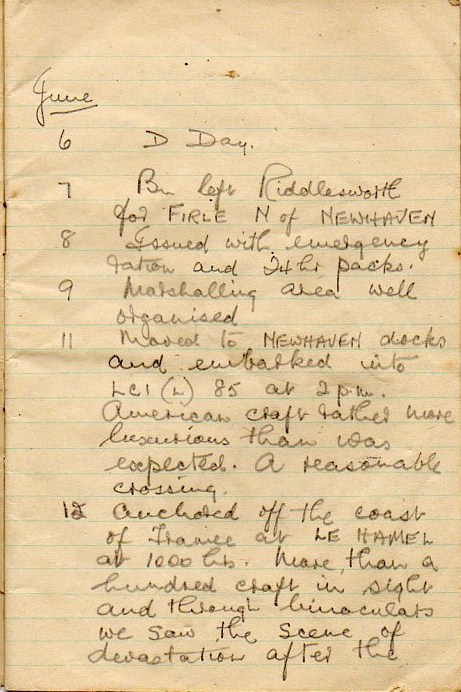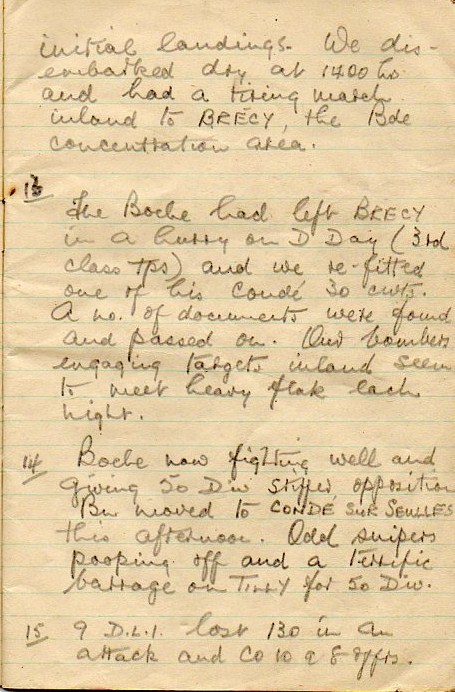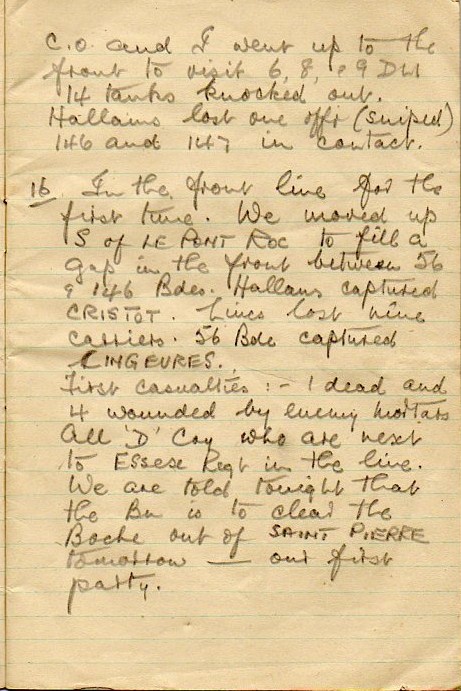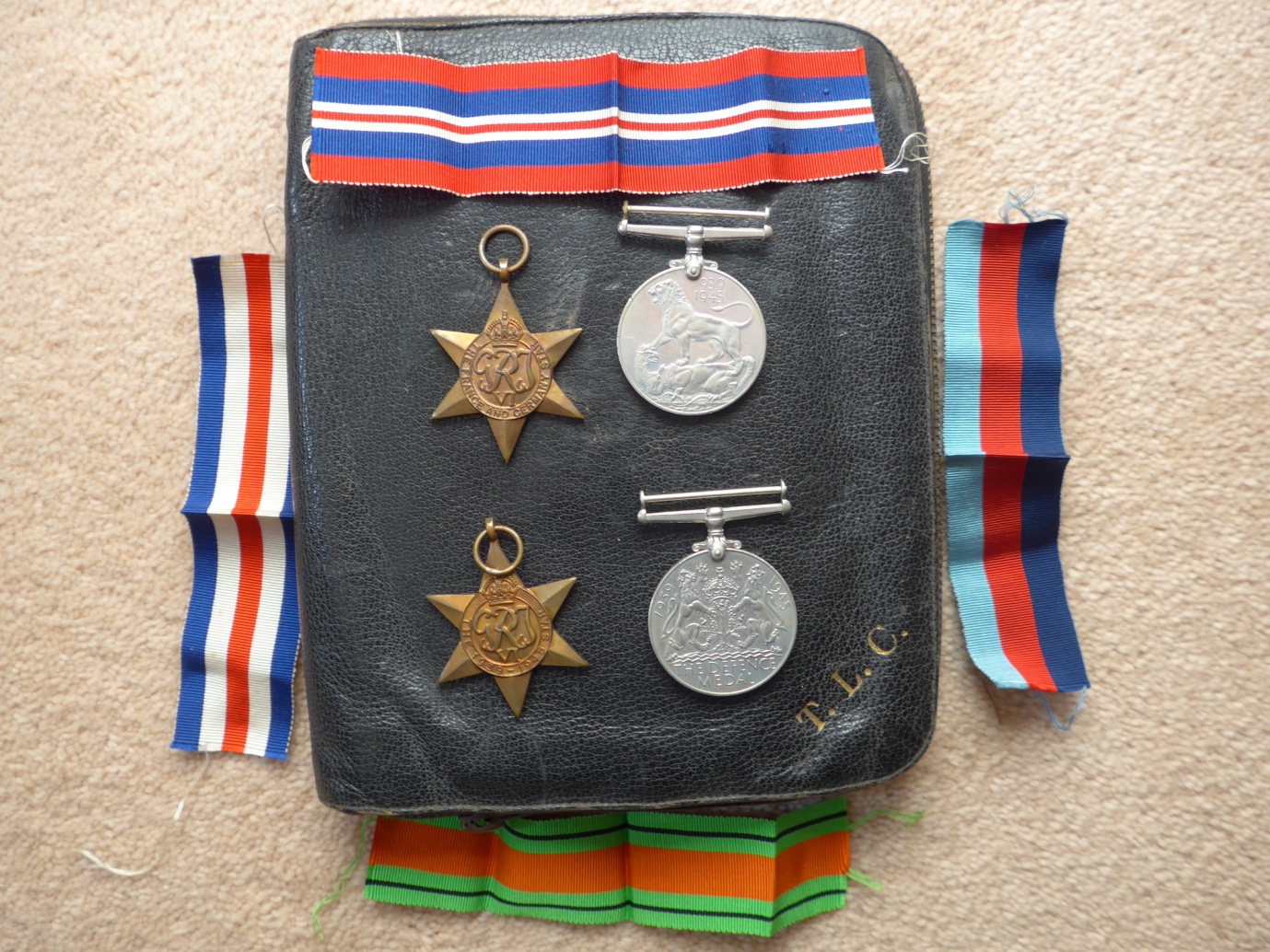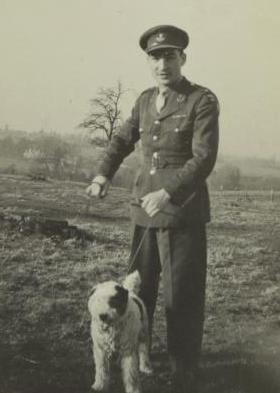Clarke Trevor Lynch 2/Lt 268953
Personnel Entry
Name Clarke Trevor Lynch
Army number 268953
Rank 2/Lt
Decorations
Date of birth 10/10/1918, Hampshire. (See note in biography below).
Age 0
Unit Enlisted in Territorial Army - Royal Artillery - served in the ranks 29/9/1938 - 24/8/1939. Trf to Royal Engineers on embodiment 24/8/1939 - May 1940. Trf to Royal Artillery May 1940 to September 1942. Pre-OCTU and OCTU Training September 1942 - March 1943. Durham Light Infantry - Emergency Commission as 2/Lt 27/3/1943, Posted 10th Bn DLI 2/4/1943. Served Normandy. Evacuated wounded to 146 Field Ambulance 17/6/1944. Returned to UK 22/6/1944. Posted No 4 Infantry Holding Battalion 24/11/1944 - 29/12/1944. Released from Army Service 1946.
Company/Battery B Company. Battalion HQ
Platoon or other sub-unit
Task or role Duty Officer, Intelligence Officer.
Joined Brigade 02-Apr-43
Promotions W/S Lt 27/9/1943
Wounded 17/6/1944
Prisoner of War
Died/Killed in action Death registered December 1978, Harlow, Essex at the age of 59.
Home address Son of George Lynch Clarke and Elizabeth Isabella Clarke (nee Cooper). Married Marion G Smith 10/7/1947 - registered Q3 1947, Essex South Western.
Source table 10DLI
Lieutenant Clarke's son, Robin, has prepared a brief history of his military service and this is set out below. Sincere thanks are due to Robin and his family for agreeing to share this very personal account with the Brigade Memorial History Website.
Trevor Lynch Clarke 1919-1978
His war years
His time in the army
My father, Trevor Lynch Clarke was born on 10th October 1919. In September 1938, aged 19, he joined the Territorial Army full time. This was a year before World War 2 started but by then, the threat was there even though many people did not think war would actually break out so soon after the Great War.
The government of the day did not begin to "conscript" people into the armed forces until April 1939 and even then, only men between 20 and 21. My father lied about his age in order to join earlier than required and this is evidenced in documents when he joined, showing that he was born in 1918, a year earlier than the truth.
His "Record of Service" shows that he was in the Territorial Army from 29.9.38 until 24.8.39 when he was transferred to the Royal Engineers just before the start of war on 3rd September 1939.
This record shows than he remained in the Royal Engineers until May 1940, joining the Royal Artillery until September 1942. From September 1942 to March 1943, he trained to become an officer. The Record of Service mentions "pre" and actual O.C.T.U. which stands for Officer Cadet Training Unit. On becoming a commissioned officer, he joined the Durham Light Infantry on 2nd April. The connection with the Durham area relates to when he and his family lived in Newcastle.
The early war years
I believe he was originally based near his home in South Woodford. However, he seemed to have been stationed in many places around Britain because as a child, I remember him always saying "Oh, I was based there" when we travelled around the country on holiday. I still have copies of a squadron magazine that he edited during 1941 called "The Bee" and at one point he was in Ireland but also mentions Tidworth, Ludgershall and Thatcham, all in England.
Trevor Clarke - second from right
Two anecdotes that he told me from these early war years were about falling asleep on duty. The first was when he was part of a motorcycle escort for a very slow moving convoy. He had to go so slowly that he momentarily dropped off to sleep and veered off the road and into a ditch. The other time was when he fell asleep on duty guarding some searchlights in the east end of London. He was caught and brought before his commanding officer who barked at him that my father should be court martialled and that the penalty for falling asleep on guard duty was death! Happily no further action was taken but my father always enjoyed telling the story.
Having started as a Private in the army, he was now a Lieutenant and it was in this capacity that he was sent over to France to fight in the Battle of Normandy.
He was injured in France in June 1944 and I presume he spent some time recuperating before spending the final 15 months of his army service at the Infantry NCO school and the School of Infantry as an Officer Instructor. He left the army in March 1946.
His time in Normandy
My father only went to the front line once and that was in Normandy, shortly after D day in June 1944.
The background to D Day is well documented elsewhere but it was the invasion of France, then occupied by the Germans, by massive forces from Britain, U.S.A, Canada and others. An invasion of some sort was expected by the German High Command but its timing and exact location was kept a strict secret by the allies. The initial invasion by 160,000 troops was on the 6th June 1944 and it was on this day that there were huge numbers of casualties. The subsequent Battle of Normandy, which saw the allies fight their way from the beaches, via Caen and eventually to liberate Paris in August 1944 saw over 400,000 casualties. It turned the tide of the war.
My father's part in this lasted just six days and ended with him being hit by shrapnel and injured in the knee.
By June 1944, my father was a Lieutenant in the 10th Battalion of the Durham Light Infantry (DLI), which along with two other Battalions, made up the 70th Infantry Brigade. He later told me that he was "disappointed" not to have been part of the D Day landings, which, bearing in mind the huge number of casualties, appears to us, in the 21st Century, utter madness. But in those days, with patriotism hiked up to fever pitch, I am sure that this would was not an uncommon reaction.
For the few days he was part of the Battle of Normandy, he kept a diary, written in pencil, which I still have.
From the above, it is clear that my father was based in Firle for three days before setting sail from Newhaven on the afternoon of 11th June 1944. Nowadays, both Firle and Newhaven are less than 10 miles from my current home in Eastbourne.
Arriving off the coast of France on 12th June, they anchored at Le Hamel, which is just outside Arromanches, the site of "Gold Beach" during the Normandy landings .
The next page of his diary shows how they encountered enemy action and clearly were being kept informed about what was happening around them. The term "Boche" was one of many slang words during the war, to describe Germans.
During these days, his Battalion had moved from the beachhead at Arromanches, heading towards Caen with the aim of taking this strategic city. However, German resistance was stiff and although the Allies had hoped to take Caen soon after D Day, it took until 6th August and cost many thousands of lives.
This final page of my father's diary starts with a comment that he went to the front line to "visit" other Battalions. I showed this diary to a World War 2 historian and he said that this comment meant that my father was almost certainly an Intelligence Officer, sent to communicate between groups of allied forces.
In his final diary entry, that of 16th June, he speaks of Le Pont Roc, Cristot and Lingeures. All of these towns and villages are just a few miles to the east of Caen.
The very final diary entry says: " We are told tonight that the Battalion is to clear the Boche out of Saint Pierre - our first party". The word "party" I am assuming means their first hand to hand combat.
I assume that it was during the following day, 17th June 1944, that my father was hit by shrapnel from an enemy shell and that was the end of his time on the front line. It took a further five days to get him back to England, where I believe he returned on 22nd June.
I also assume that he was injured in the tiny village of Saint-Pierre, just a mile to the west of Tilly-Sur-Seulles, which changed hands more than twenty times during the Battle of Normandy. It has various roads in it named after that time in history, including a street called "Rue du 18 Juin 1944", the day after my father was wounded.
He returned to England to recuperate. Caen was eventually taken on 6th August, exactly two months after D day and Paris was liberated three weeks later.
Why tell the story?
I was born four years after the end of World War 2. The bomb sites, some rationing and constant talk about the war remained but it held no interest for me. Holidays spent driving to a place where my father had been stationed and even a trip to Arromanches where he landed in Normandy, just seemed so boring, with no context as to what it all meant.
But now, as a man older than my father was when he died, I regret that I did not ask more about what my family went through in the war. My father was "lucky" in that he only spent a few days on the front line and his injury was not as serious as some. Nevertheless, the thought of being close to the enemy, in a foreign country, for a week which ended in being wounded, is something I have been very lucky not to have endured.
So, thank you Dad and the rest of my family and indeed the many millions who fought for their freedom and the freedom of their children and grandchildren. I hope that this document will be kept and in some small way remind future generations of our gratitude.
written by Robin Clarke - October 2014

